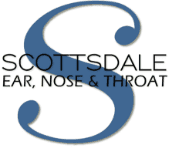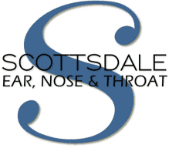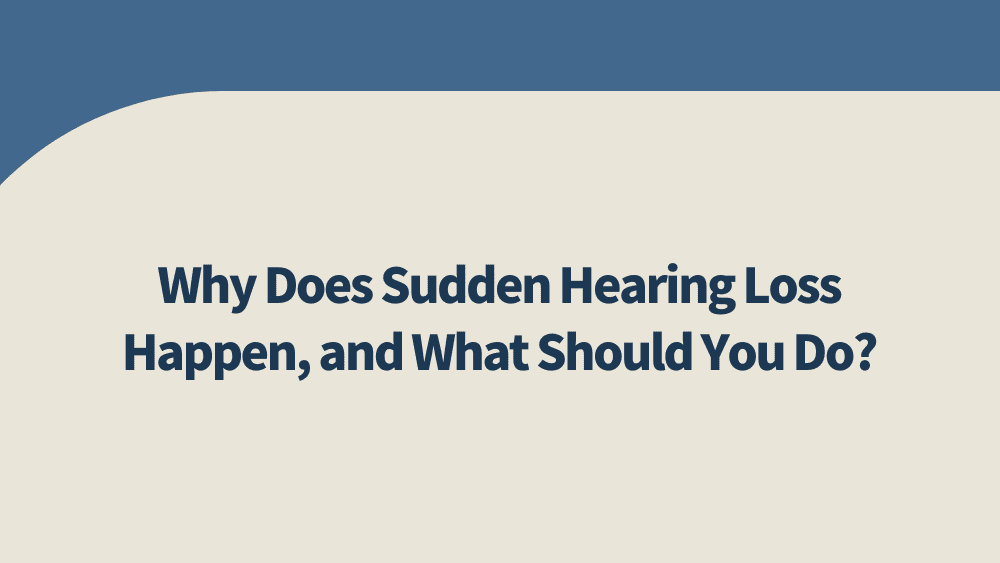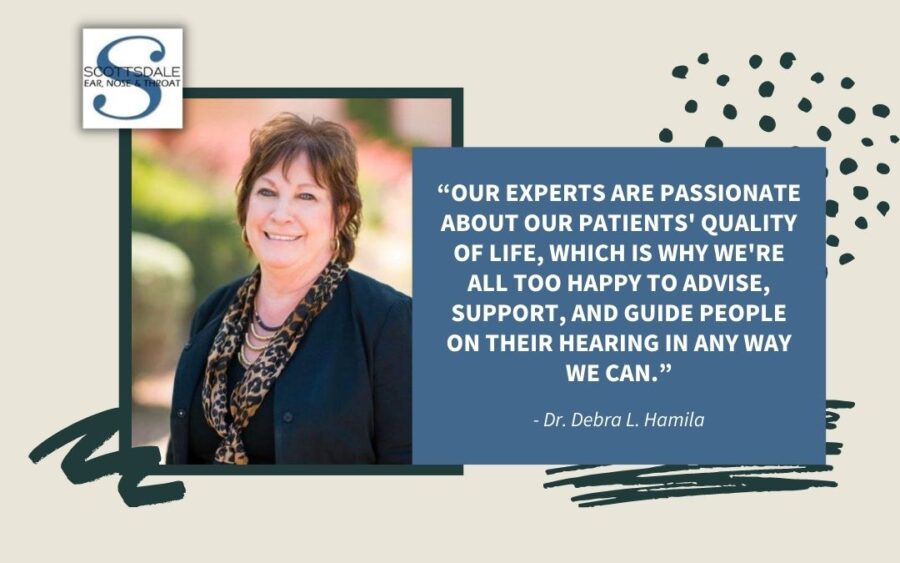Most people believe that hearing loss primarily affects older adults above the age of sixty. However, an alarming number of adults, one to six out of every 5,000, are struck by sudden hearing loss in their late 40s to early 50s. This form of sensorineural hearing loss comes on rapidly without any explanation. The greatest tragedy is that it often goes undiagnosed, making it nearly impossible to treat as the condition advances. I hope that by raising awareness of this condition, the Scottsdale community will take this and other forms of hearing loss more seriously.
What is sudden hearing loss?
Sudden sensorineural hearing loss (SSHL) results from some form of damage to the sensory organs of the inner ear. SSHL comes on all at once or over the span of a few days, typically affecting just one ear. Common symptoms include a loud pop before hearing in that ear disappears, feelings of pressure or fullness, dizziness, and or ringing in the ears or tinnitus.
Individuals often put off seeing an audiologist or ENT because they equate the condition with allergies, earwax buildup, a sinus infection, or other common conditions. Though the majority of people regain normal hearing within a few weeks, delayed diagnosis and treatment can minimize treatment effectiveness.
What is the cause of sudden hearing loss?
SSHL stems from a variety of disorders, but doctors are only able to identify a definite cause in about 10 percent of diagnosed cases. Causes that have been identified include conditions like:
- an infection
- head trauma (TBI)
- autoimmune diseases
- ototoxic medications
- blood circulation issues
- neurological conditions (MS)
- Ménière’s disease
Though SSHL typically affects only one ear, doctors usually look to causes like a tumor on the auditory nerve or an autoimmune disease in cases where both ears are impacted.
Diagnosing Sudden Hearing Loss
Scheduling a hearing assessment within 24 to 48 hours is a critical element in diagnosing SSHL. Diagnosis usually begins with ruling out any form of conductive hearing loss like excessive earwax, fluid on the ears, inflammation, growths, or other obstructions along the hearing pathway.
A pure tone audiometry also allows doctors to measure your capacity to hear various sound frequencies at different volumes. SSHL commonly causes a loss of 30 decibels in three connected frequencies with 72 hours after the onset of symptoms. A drop of this magnitude makes normal conversation sound like someone is whispering.
Determining the condition’s underlying cause is a bit more complicated and typically includes blood tests, MRI imaging, and balance tests.
Treating Sudden Hearing Loss
The most common treatment for sudden hearing loss is corticosteroids, which are ordered to reduce inflammation and help the body fight off any illness that causes the problem.
Other treatments are necessary to treat specific underlying causes, such as prescribing antibiotics for an infection or ordering a change in or discontinuance of ototoxic medications. Immune suppressing treatments become necessary when SSHL’s cause is an autoimmune disease.
Scottsdale ENT Has Solutions for Sudden Hearing Loss
For proper diagnosis of sudden hearing loss, timing is critical. Diagnosis and treatment within 24 to 48 hours after the onset of symptoms give Scottsdale ENT the best shot at clearing up this condition. If you suspect that you are suffering from SSHL, contact us to schedule a comprehensive hearing assessment. We offer Telemedicine appointments to those who require remote assistance, and you are always welcome to call us at (480) 684-1080 as well.



